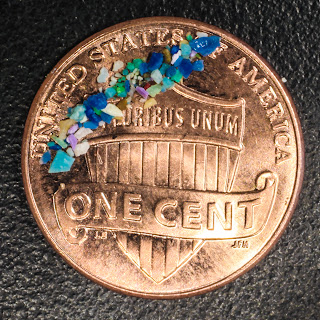What do China, Hawaii, Washington, and Oregon have in common? The North Pacific Gyre.
Between last spring and this fall, we've found hundreds of bottle caps among other plastic debris from Asia, which aren't sold in America. How is it that we are finding the same brands of bottle caps, thousands of miles apart, and even further from the country in which they are sold?
The oceans connect us all. Literally. If garbage is dumped, littered, or blows out of a bin anywhere from Korea to California, it finds it's way into the North Pacific Gyre, which acts like a giant toilet bowl collecting debris in a current vortex.
This photo by Chris Bensch taken in Santa Cruz, CA shows what happens to garbage and recycling at one stage of garbage/recycling collection and transfer. If it floats or blows it will find it's way into the storm drain, down to the river and out into the ocean where it wreaks havoc on ecological systems, wildlife, and humans.
We found these bottle caps, and dozens more, plus thousands of bits of plastic left from these items as they break up from abrasion and UV, on the beaches of Kauai, Hawaii:
The photos below show debris collected from Hobuck Beach in Northern Washington. The garbage was spread over about a half mile of beach after a large storm. Note the Nongfu brand bottle caps. Nongfu is China's best selling brand of bottled water. It is distributed in several countries in Asia, but not in the U.S., Canada, or Mexico.
The photos below show debris collected from Indian Beach in Northern Oregon nearly a month after the Hobuck collection above. Debris was spread over the entire beach after a storm, but this collection was gathered entirely from a four square foot area at the high tide line. From a distance the beach appeared pristine. As we looked closer, we found the usual broken bits of post consumer plastic inundating the high water line. We even discovered plastic in it's raw form. The small white pellets you see in the photos below are what all plastic items begin as. Everything from kayaks to water bottles start of this way. These plastic pellets don't get to the beach from the storm drain, but rather enter the ocean from jettison, both accidental and intentional, from the hundreds of thousands of cargo ships traversing oceans every day. It's important to note that in July 2012 there was a huge amount of plastic pellets dumped in the ocean near Hong Kong in a shipping accident caused by a typhoon. It's hard to know for sure if the pellets we found are from the Hong Kong disaster or not, but as far as we were able to research it was the only mass jettison of plastic pellets in the Pacific in 2012, and it was also one of the biggest nurdle spills ever. The event was largely under-reported. We were made aware of the disaster through our mutual global network of beach cleaners and plastic pollution fighters. To date this is the only article we could find acknowledging the event: http://www.scmp.com/lifestyle/health/article/1018164/typhoon-kai-tak-helps-clean-plastic-pellets-dumped-vicente
From a distance, the beach looks clean...
Closer inspection reveals plastic everywhere.
Plastic the size of a grain of sand.
The bits get smaller and smaller but always remain.
Raw plastic bits, AKA nurdles, possibly from a spill in China.
So what can we do to stop plastic pollution? Stop buying it. Don't get us wrong, plastic is an amazing material. It's designed to last forever, and has limitless uses. We're not against plastic. We are against laziness, apathy, and disposable products. It makes absolutely no sense at all to make disposable products that are used from just a few seconds to a few hours, from a material designed to last forever. The result of this consumer habit can be seen above. Disposable plastic bottles and bags are the easiest to replace with re-usable alternatives. They are also the most widely used disposable items, so eliminating their use can have a huge impact.
If we stop demanding disposable plastic products, then production will drop to a point of equilibrium with lower demand. When production and supply decrease, so does pollution. Let's save plastic for use in things we need to last forever, not five minutes. After all, we are all connected by oceans.





















I think it's affects are far reaching but people are not realizing it yet.
ReplyDeletethe lumineers tickets
the lumineers event tickets
It will kill us faster then it will connects us. Something thing needs to be done on a huge scale.
ReplyDeletemeet and greet Luton
meet and greet at Luton
Healrun is a health news blog we provide the latest news about health, Drugs and latest Diseases and conditions. We update our users with health tips and health products reviews. If you want to know any information about health or health product (Side Effects & Benefits) Feel Free To ask HealRun Support Team.
ReplyDeleteSupplements For Fitness without any desire? Diet pills have come a long way. There are even supplements that have no side effects! How many diet pills that you know have no side effects? Therefore, you get all the benefits
ReplyDeletePilpedia is supplying 100 percent original and accurate information at each moment of time around our site and merchandise, and the intent is to improve the usage of good and pure health supplement. For More Info please visit Pilpedia online store.
ReplyDelete